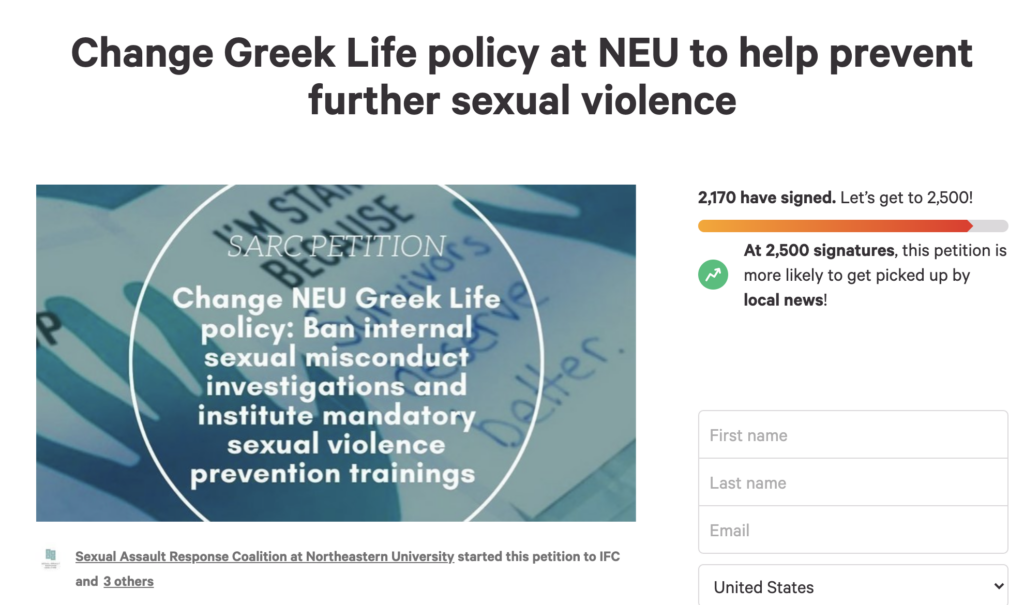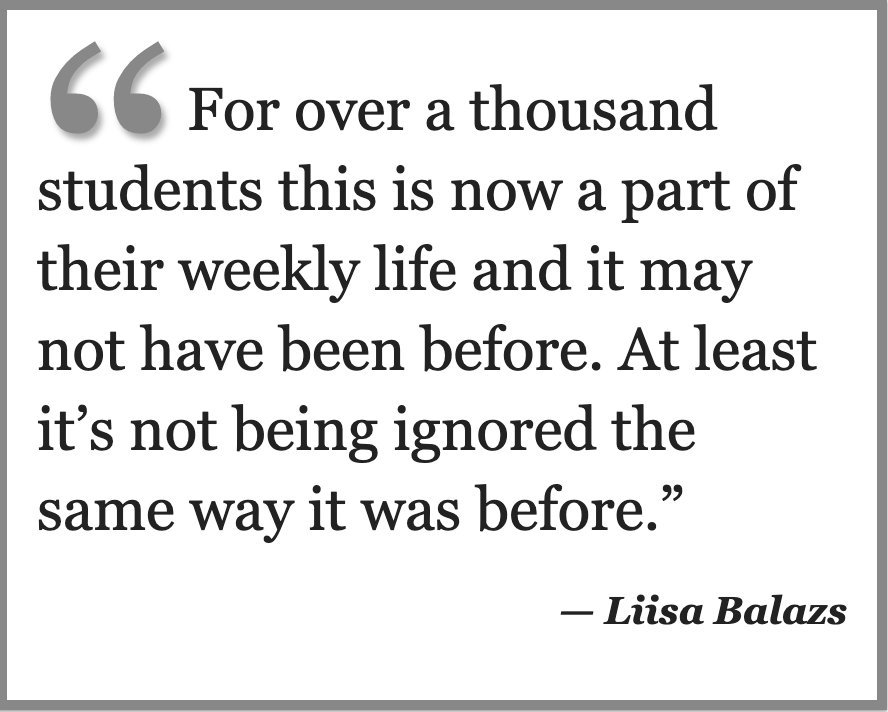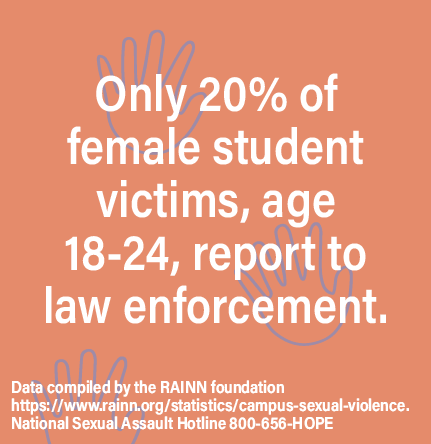
Content Disclaimer: This story discusses sexual assault and rape.
Last week I found myself within earshot of a conversation about the up-and-coming merger with Northeastern University. A few Millsies were chopping it up about a topic that many of us at Mills are interested in knowing the answer to: the pesky issue of interaction between male and female students on college campuses. More specifically, how does Mills leadership intend to deal with sexual assault?
To be fair, this question isn’t to say that all or the majority of students coming to Mills from Northeastern are cis males, much less wild and out of control frat boys that throw toga parties and do keg stands. Who’s to say if any of the male students are even interested in coming to Mills next semester?
Regardless, like my fellow classmates, my concern for many of our students here at Mills is the possibility of sexual harrassment and assault on campus – not just for our female students, but for our transgender and nonbinary members of the student body, faculty and staff.
I did some digging and found that Northeastern has had ongoing issues with sexual assault, some of them recent. In December of 2017, a blogpost titled Northeastern Students Adopt Campus Imagery To Raise Awareness About Sexual Assault highlighted students’ efforts to spread awareness about sexual harassment and assault on NEU campus through a strategic marketing campaign that utilizes the university’s own marketing materials. This campaign, known as the “NEU Too” movement, started when various signs featuring anonymous student pictures with stories of assault and harassment were posted mysteriously around campus. Over 60 stories from survivors were shared on the campaign’s website. According to the campaign, between 2013 and 2015, Northeastern officially reported 43 rape cases involving students. These numbers conflicted with claims made by NEU Too that a 2015 survey found 145 rape cases that had been reported.
It doesn’t stop there.
I stumbled upon an article written back in April of 2021 by Julia Carlin, deputy campus editor of The Huntington News, the independent newspaper of Northeastern University. Carlin’s piece highlights “a culture of sexual assault within Greek life” on the NEU campus.
“It’s not uncommon for women to experience forms of sexual assault while at a fraternity party — whether they’re grabbed by the hips, groped from behind, subjected to degrading verbal advances or taken upstairs and raped,” says Carlin.
Members of Northeastern’s Sexual Assault Response Coalition (SARC) created an Instagram account called Northeastern SpeakOut, or NEU Speakout, in August 2020, Huntington News reports. According to their mission statement, SARC created the SpeakOut platform in an effort to “provide a safe and supportive space for survivors to share their stories and raise awareness around the pervasiveness of sexual violence.”
Stories of sexual trauma were highlighted when the account began posting survivors’ anonymous statements of sexual violence to over 1,200 followers. Most of the testimonies posted detailed experiences that occurred during or after a fraternity party or involved a member of a fraternity as the perpetrator.
“Frat parties are hotbeds for sexual assault,” said fourth-year political science, international affairs major and a member of the Kappa Delta sorority, Sydney Wise. She stated that seeing the survivors come forward and give their testimony on the NEU SpeakOut platform “lit a fire inside” of her. Their courage gave her the strength to bring forward a Title IX case against her perpetrator, a member of Greek life who assaulted her in 2018.
Pavan Hirpara, a member of the Alpha Kappa Sigma fraternity and the president of Northeastern’s Interfraternity Council (IFC), which oversees the nine fraternities, was stunned by how frequently fraternities were mentioned on NEU SpeakOut.
Hirpara was shocked to see people and organizations he knew personally being named as a part of this problem. Now that he is aware of the issues being addressed, he feels that the IFC and their chapters “need to do better.”

SARC is currently advocating for the university’s adoption of two new campus policies specifically directed at rape culture within Greek life, as outlined in a change.org petition that has 2,500 signatures as of October 22, 2021.

SARC states within the petition that a survivor in the Delta Phi Epsilon sorority reached out to them directly, confessing that she was the victim of sexual misconduct with a Greek life organization. The survivor took the matter up with the fraternity, in good faith that they would hold their perpetrator accountable and discipline the member accordingly. To her dismay, the end result was what SARC describes as a “mishandling of an internal sexual misconduct investigation and case.”
ARC explains in the petition that they have chosen to push forward with an initiative to shift policies at the organizational levels that would ensure such incidents do not happen again. The petition expresses support for two policy changes and two policy recommendations, which are:
1. Ban all Greek life organizations from holding internal sexual misconduct investigations, trials and cases.
This would mean that if an allegation of sexual misconduct is brought to the attention of the organization’s leadership, they must not investigate the situation internally. The investigative process includes taking statements from survivors and perpetrators and organizing an internal hearing
The petition goes on to say that “each time an allegation of sexual misconduct is presented to an organization, they must conduct a review of organizational practices to prevent further sexual misconduct.” It suggests that the organizations consider bringing in a third-party, trauma-informed expert to examine the policies and structures currently in place in order to “reduce future harm and increase safety for members and non-members from sexual misconduct.”
Survivors should be encouraged by Greek life organizations to take the issue to Northeastern leadership, and demand actions be taken against their perpetrators. The expectation is that once these steps have been taken, the organizations that perform these investigations on their members will be placed on social probation, be removed from the school council, and/or implement other punitive measures, such as fines.
2. To change the culture of sexual violence in Greek life, organizations must conduct mandatory sexual violence prevention and education trainings once a semester. The training can come from various approved student organizations (such as SARC).

According to the National Sexual Violence Resource Center, from a national standpoint, rape is the most underreported crime with only 25% of all sexual attacks being reported to the police in 2018. That same year, 90% of sexual assault victims reported their assaults happening on college campuses. Unfortunately, many U.S. college campuses do not report accurate numbers.
As reported in the statistics for campus sexual assault:
*One in five women and one in 16 men are sexually assaulted while in college.
*More than 90% of sexual assault victims on college campuses do not report the assault.
*63.3% of men at one university who self-reported acts qualifying as rape or attempted rape admitted to committing repeat rapes.
My prayer is that the introduction of a new culture of students on the campus of Mills College will lead to a cohesive and safe transition of leadership, resources and nomenclature. Mills has served as a safe space for Oakland’s women, LGBTQ+ and non-binary activists, artists and intellects to access an affordable education in an inclusive environment. Are we perfect? Hell no! Not by any means. But we are a collective student body of disenfranchised, immigrant, minority, disabled veterans who respect the rich history of this school and thrive within a domain of inclusiveness that I personally have never experienced at any other institution of higher education I’ve attended.
The social and psychological factors that produce low reporting of sexual assault affect the exact groups Mills represents. These factors include the shame of being victimized, the tendency to self-blame, and the negative perceptions that some in law enforcement and the criminal justice system have about Black and Latina women and members of the LGBTQ+ community. I pray that Mills’ pursuit of increased funding is not feeding the sheep to the wolves in exchange for profit.
